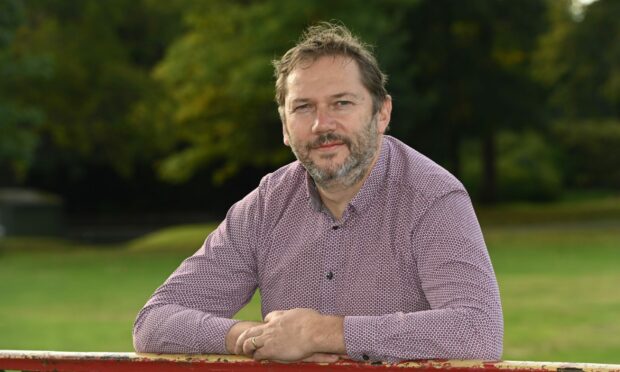A leading energy expert is warning a “serious lack of understanding” from Green ministers is putting the government’s climate targets at risk.
Dr Keith Baker, a former campaigns officer for the party in Edinburgh, is now a research fellow in fuel poverty and energy policy at Glasgow Caledonian University and co-founder of the Energy Poverty Research initiative.
His warning comes as new analysis reveals fewer than 10% of social homes contain heat pumps in the vast majority of Scottish local authorities, including Dundee, Fife, Angus and Perth & Kinross.
Green minister Patrick Harvie has called for an “extraordinary scale of expansion” in their installation, up to 100,000 a year.
Data obtained by freedom of information legislation shows that in at least 25 out of 32 local authorities in Scotland, fewer than one in 10 social homes have a heat pump.
Radical reforms needed
Dr Baker said that while the devices are not right for every property, the industry is suffering from a “serious lack of skills” and a reluctance from government to make the necessary improvements to existing homes.
The expert admitted he does not believe the Scottish Government is “minded to make anything like the kind of radical reforms that we need”.
He said: “In order to make any real improvements to energy performance, you’ve got to deal with the condition of the stock.
“If you don’t maintain properties properly then you’re not going to get the same bang for your buck.
“Heat pumps are a really good example of that because they work best when you have a well-insulated, draft-proof property.”
A legacy of failure
Dr Baker warned that placed in ill-suited properties, heat pumps “aren’t going to be much use” and could even lead households into higher energy bills.
“That should not be the case,” he said.
“We should have efficient properties and be able to say to people that if they stick their heat pump on, they will save money and reduce carbon emissions.
“But the truth is we don’t – and it’s a legacy of the Scottish Government not investing in maintaining properties.”
Local authorities where the percentage of social homes with heat pumps is higher than 10% are Argyll and Bute, Highland, Moray, the Western Isles, and Orkney.
For Dumfries and Galloway, 14% of social homes operated by the Weatley Group contain heat pumps, whereas 5% of Loreburn Housing Association’s stock do.
East Lothian Council was the only local authority not to provide the information as it requested a fee.
‘Over promising and under delivering’
Dr Baker said there must be a “significant increase in the number of trained installers” and a commitment to improving existing social housing if the government hopes to meet its target of 100,000 installations a year.
But while he believes that goal is not impossible, he added that there is currently a “serious lack of understanding of the technicalities of doing it”.
Tory energy spokesman Douglas Lumsden said: “On their current timetable, they stand no chance of meeting Patrick Harvie’s target for expansion.
“They are already missing their own renewable heat targets. By 2020, the amount generated by renewables was only a little more than half their aim.
A Scottish Government spokesperson said: “We know that the decarbonisation of Scotland’s housing stock is a massive challenge and the transition will take many years.
“That is why we have set aside at least £1.8 billion over the course of this parliament towards increasing the amount of low-carbon heat and energy efficiency measures being introduced in our buildings. Over 150,000 Scottish households already live in homes which are warmer and cheaper to heat, thanks to our investment.”
The government says £200m of grants are available to councils and social landlords in this area.
“We agree that a good level of energy efficiency is critical to the transition to net zero and for zero direct emissions technologies such as heat pumps,” the government added.
“We are taking forward a range of measures to improve energy efficiency, including making it a requirement that all privately-owned homes in Scotland reach the equivalent of EPC C by 2033.”




